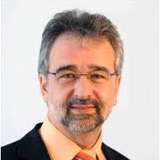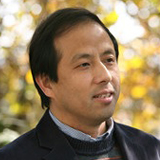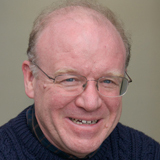Plenary Speakers
(english only)
 |
Prof. Dr.-Ing. Wolfgang Steiger |
|
|
Position |
Director Future Technologies |
|
|
Institution |
Volkswagen Group |
|
|
Branche |
Automotive |
|
|
Origin |
Germany |
|
|
Particulars Wolfgang Steiger is the Director Future Technologies within the External Relations department for the Volkswagen Group. His skills are in powertrain development and design. During his career he was involved with Robert Bosch GmbH, Battelle Institute and Adam Opel AG finally there being responsible for diesel engine development and test. In 1997, he joined the Volkswagen AG group research department. Until December 2008, for more than eleven years, he was responsible for powertrain research, including diesel and gasoline engines, transmissions, hybrids, batteries, fuel cells, engine electronics and fuels. He published more than 100 papers, presentations and lectures in several universities, including in China. Wolfgang Steiger is engaged in several European organizations: |
||
|
Lecture The Path to A Post Fossil Fuel Era The earth’s energy demand is constantly increasing. Separating the economic development from the energy demand does not seem possible. At the same time, the effort to exploit useful energy sources, especially fossil fuels and renewable sources, is growing. As a result, the price basis of a certain energy source is not solely determined by its quantity, but also by the effort required to produce and distribute it. This leads to certain basic guidelines: |
||
 |
Dr. Karim Mokaddem |
|
|
Position |
Hybrid Air Project Executive |
|
|
Institution |
PSA Peugeout Citroen |
|
|
Branche |
Automotive |
|
|
Origin |
France |
|
|
Particulars
Karim Mokaddem is currently Hybrid Air Project Executive Manager at PSA Peugeot Citroen and President of Technoboost a Joint Venture between PSA Peugeot Citroen and the French Government. He has been working in PSA Peugeot Citroen for 13 years. From 2009 to 2011, he was Advanced Powertrain Executive Manager. Prior to that position, from 2007 to 2009, he was Advanced Diesel Powertrain Projects Manager and also responsible for the Advanced and Research PSA/Ford collaboration. From 2005 to 2007, he was Combustion and engine emissions scientific program leader. He started his career at Institut Francais du Petrole (IFP) in 1996. Positions held include Engine Combustion Engineer, Project Manager and Combustion team leader. Karim Mokaddem holds a Master of Science degree in mechanical engineering, a PhD in Physics and an Executive MBA focused on finance and global strategy. Karim Mokaddem is author and coauthor of more than 20 international technical papers and patents with international extension. |
||
|
Lecture
Hybrid air: A disruptive technology and an entrepreneurial innovation model within PSA Peugeot Citroen Increasingly ambitious standards are being set worldwide to reduce emissions of greenhouse gasses and pollutants (NOx and particulates), with targets of 95 g of CO2 per km in Europe and 117 g per km in China by 2020. Full-Hybrid vehicles will be a necessary part of the equation to meet the 2020 CAFE targets. Hybrid Air is a new type of full-hybrid powertrain that combines a petrol engine and compressed air for energy storage instead of a battery, offering an alternative to electric hybrid solutions. Hybrid Air reinforces PSA Peugeot Citroën as a European leader in the CO2 emissions (122,5 g/km in 2002), with an affordable core model offering that delivers lower fuel consumption and ease of use. With the Hybrid Air PSA Peugeot Citroën took the opportunity to test a new method for managing innovation aligned with the needs of a high-stakes project and the ambition to deliver something rare, valuable and difficult to imitate. This new model includes seven key points that will be presented during the conference. With Hybrid Air PSA Peugeot Citroen has experienced an entrepreneurial innovation business model including the financial partnership with France’s Investments in the Future program. |
||
 |
Prof. Huayong Yang |
|
|
Position |
Professor and director of the State Key Laboratory for Fluid Power Transmission and Control |
|
|
Institution |
Zhejiang University |
|
|
Branche |
Fluid Power |
|
|
Origin |
China |
|
|
Particulars
Huayong Yang is the Cheung Kong Chair Professor of Zhejiang University and the director of National Engineering Research Center of Electrohydraulic Control since 2000. He is a Fellow of the Chinese Mechanical Engineering Society and a member of China Academy of Engineering. He is again the director of the State Key Laboratory of Fluid Power Transmission and Control at Zhejiang University since March 2014, and he was the director of the laboratory previously in 1997 to 2001. He is also an active expert for fluid power related industries and various government agencies in China.
He received his B.Sc. from Huazhong University of Science and Technology, China in 1982 and his Ph.D. degree from University of Bath, United Kingdom in 1988. He is a prolific researcher with 129 patents, (co)authored 3 academic books and over 240 technical papers published in international journals and conferences. He is active in major international conferences related to both fluid power and Mechatronics. He has been a member in the Technical/Program Committee of international conferences such as 2011 IEEE/ASME International Conference on Advanced Intelligent Mechatronics and also the IPC co-chair of 2013 IFAC Symposium on Mechatronic Systems.His research interests are in motion control and energy saving of mechatronic systems, fluid power component and system development.
|
||
|
Lecture Recent Research Activities in China As China is still in the process of industrial revolution as well as urbanization, the demand from industry for fluid power up to date components and systems have been ever increasing during in the past 30 years. The short term economic fluctuation would not change the long term development trend of fluid power industry in China. Analysis of data from different industrial sectors for fluid power in recent years will be presented first, then a brief introduction will be given to recent research and development activities in the Chinese university community. The focus of attention for undergoing projects and research areas is similar to the rest of the world, that is to increase functionalities in terms of high pressure and high speed, to reduce the noise and contamination level and to improve the efficiency of energy usage and quality of products |
||
 |
Prof. Kim A. Stelson |
|
|
Position |
Director of Research Center for |
|
|
Institution |
University of Minnesota, Department |
|
|
Branche |
Fluid Power |
|
|
Origin |
Minnesota, USA |
|
|
Particulars Kim A. Stelson is Director of the NSF-funded Engineering Research Center for Compact and Efficient Fluid Power. He is a Professor in the Department of Mechanical Engineering at the University of Minnesota where he has been since 1981. He received his B.S. from Stanford University in 1974 and his S.M. and Sc.D. from M.I.T. in 1977 and 1982. Stelson has twice been awarded the Rudolf Kalman Best Paper Award of the ASME Journal of Dynamic Systems, Measurement and Control. He is a Fellow of the American Association for the Advancement of Science. |
||
|
Lecture Fluid Power Research in the U.S.A Since it’s creation seven years ago, the Center for Compact and Efficient Fluid Power (CCEFP) has led a renaissance academic fluid power research in the United States. The CCEFP is a network of seven universities and more than fifty companies organized into three thrusts: efficiency, compactness and effectiveness. CCEFP fluid power research is demonstrated on six test beds spanning a range of six orders-of-magnitude of power and weight: precision pneumatics for MRI guided surgery, orthosis, patient mover, passenger car, excavator and wind power generator. Several developments with high commercialization potential will be presented along with examples of industry-university collaboration. |
||
Wichtige Daten
-
8th – 10th March 2016
10th IFK in Dresden -
19th – 21th March 2018
11th IFK in Aachen
Partner & Sponsors
Ihre Kontaktperson
Dirk Schulze Schencking
Academic Staff/ Wiss. Mitarbeiter
RWTH Aachen University, IFAS
Steinbachstraße 53
52074 Aachen




